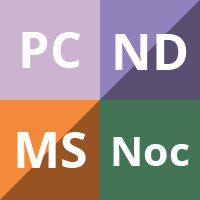
Treatment for sialorrhea (excessive saliva) in people with motor neuron disease/amyotrophic lateral sclerosis
Abstract Background Motor neuron disease (MND), also known as amyotrophic lateral sclerosis (ALS), is a progressive neurodegenerative condition that may cause dysphagia, as well as limb weakness, dysarthria, emotional lability, and respiratory failure. Since normal salivary production is 0.5 L to 1.5 L daily, loss of salivary clearance due to dysphagia leads to salivary pooling […]

Cell-based therapies for amyotrophic lateral sclerosis/motor neuron disease
Abstract Background Amyotrophic lateral sclerosis (ALS), which is also known as motor neuron disease (MND), is a fatal disease associated with rapidly progressive disability, for which no definitive treatment exists. Current treatment approaches largely focus on relieving symptoms to improve the quality of life of those affected. The therapeutic potential of cell‐based therapies in ALS/MND […]

Drug treatment for spinal muscular atrophy type I
Abstract Background Spinal muscular atrophy (SMA) is caused by a homozygous deletion of the survival motor neuron 1 (SMN1) gene on chromosome 5, or a heterozygous deletion in combination with a point mutation in the second SMN1 allele. This results in degeneration of anterior horn cells, which leads to progressive muscle weakness. By definition, children with SMA […]

Physical exercise training for type 3 spinal muscular atrophy
Abstract Background Physical exercise training might improve muscle and cardiorespiratory function in spinal muscular atrophy (SMA). Optimization of aerobic capacity or other resources in residual muscle tissue through exercise may counteract the muscle deterioration that occurs secondary to motor neuron loss and inactivity in SMA. There is currently no evidence synthesis available on physical exercise […]

Treatment of fatigue in amyotrophic lateral sclerosis/motor neuron disease
Abstract Background Amyotrophic lateral sclerosis (ALS), also known as motor neuron disease (MND), is terminal, progressive neurological condition for which there are no curative treatments. Among people with ALS/MND, fatigue is a common and debilitating symptom, which is characterised by reversible motor weakness and whole-body tiredness that is only partially relieved by rest. The effectiveness […]

Invasive versus non-invasive ventilation for acute respiratory failure in neuromuscular disease and chest wall disorders
Abstract Background Acute respiratory failure is a common life-threatening complication of acute onset neuromuscular diseases, and may exacerbate chronic hypoventilation in patients with neuromuscular disease or chest wall disorders. Standard management includes oxygen supplementation, physiotherapy, cough assistance, and, whenever needed, antibiotics and intermittent positive pressure ventilation. Non-invasive mechanical ventilation (NIV) via nasal, buccal or full-face […]

Symptomatic treatments for amyotrophic lateral sclerosis/motor neuron disease
Abstract Background Motor neuron disease (MND), which is also known as amyotrophic lateral sclerosis (ALS), causes a wide range of symptoms but the evidence base for the effectiveness of the symptomatic treatment therapies is limited. Objectives To summarise the evidence from Cochrane Systematic Reviews of all symptomatic treatments for MND. Methods We searched the Cochrane […]

Gamma aminobutyric acid (GABA) modulators for amyotrophic lateral sclerosis/motor neuron disease
Abstract Background Imbalance of gamma aminobutyric acid (GABA) and related modulators has been implicated as an important factor in the pathogenesis of amyotrophic lateral sclerosis (ALS), which is also known as motor neuron disease (MND). In this context, the role and mechanism of action of gabapentin and baclofen have been extensively investigated, although with conflicting […]

Stretch for the treatment and prevention of contractures
Abstract Background Contractures are a common complication of neurological and non-neurological conditions, and are characterised by a reduction in joint mobility. Stretch is widely used for the treatment and prevention of contractures. However, it is not clear whether stretch is effective. This review is an update of the original 2010 version of this review. Objectives […]

Pharmacological treatments for fatigue associated with palliative care
Abstract Background This review updates the original review, ‘Pharmacological treatments for fatigue associated with palliative care’ and also incorporates the review ‘Drug therapy for the management of cancer-related fatigue’. In healthy individuals, fatigue is a protective response to physical or mental stress, often relieved by rest. By contrast, in palliative care patients’ fatigue can be […]

